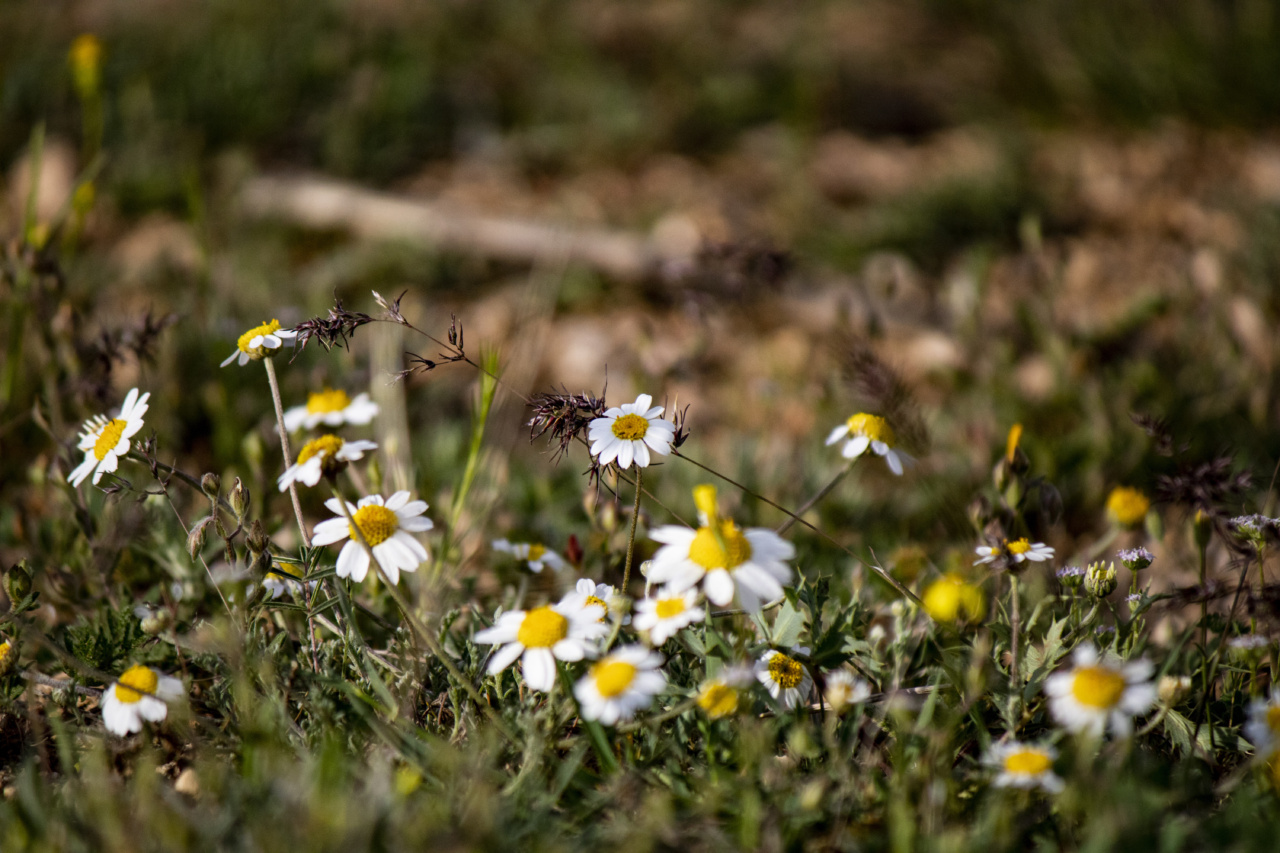Stress is a common problem that many people face in today’s fast-paced world. It can affect our mental and physical well-being, leading to various health issues.
While there are several ways to manage stress, including exercise, meditation, and therapy, using herbs can also be an effective and natural way to combat stress. Here, we have compiled a list of 30 stress-busting herbs that you should know about.
1. Lavender
Lavender is known for its calming properties and is often used in aromatherapy to promote relaxation. It can help reduce anxiety and improve sleep quality, making it an excellent herb for stress relief.
2. Chamomile
Chamomile has been used for centuries to calm the mind and promote relaxation. It contains compounds that bind to certain receptors in the brain, helping to reduce anxiety and stress.
3. Ashwagandha
Ashwagandha is an adaptogenic herb that helps the body adapt to stress. It can reduce cortisol levels, a hormone associated with stress, and promote a sense of calmness and wellbeing.
4. Lemon Balm
Lemon balm is a member of the mint family and is known for its soothing properties. It can help reduce stress, promote sleep, and improve mood.
5. Passionflower
Passionflower has been used for centuries as a natural remedy for anxiety and insomnia. It can increase levels of gamma-aminobutyric acid (GABA), a neurotransmitter that promotes relaxation and reduces anxiety.
6. Rhodiola
Rhodiola is an adaptogenic herb that helps the body cope with stress. It can improve energy levels, enhance mood, and reduce fatigue associated with stress.
7. Holy Basil
Holy basil, also known as tulsi, has been used in Ayurvedic medicine for its stress-relieving properties. It can help reduce anxiety, improve mental clarity, and promote overall well-being.
8. Ginseng
Ginseng is an adaptogenic herb that can improve the body’s response to stress. It can increase energy levels, enhance mental performance, and reduce feelings of fatigue.
9. Valerian Root
Valerian root is a natural sedative that can help promote relaxation and improve sleep quality. It is often used as a remedy for stress-related insomnia.
10. Kava
Kava is a herb native to the South Pacific islands and is known for its calming and euphoric effects. It can help reduce anxiety, promote relaxation, and improve sleep.
11. Skullcap
Skullcap is often used as a nerve tonic and can help reduce anxiety and stress. It promotes a sense of calmness and relaxation without causing drowsiness.
12. St. John’s Wort
St. John’s Wort is a well-known herb used for its antidepressant and mood-stabilizing properties. It can help reduce symptoms of mild to moderate depression and anxiety.
13. Gotu Kola
Gotu kola is an adaptogenic herb that helps the body cope with stress. It can improve cognitive function, reduce anxiety, and enhance memory.
14. Siberian Ginseng
Siberian ginseng, also known as eleuthero, is an adaptogenic herb that can help increase energy levels, improve mental performance, and reduce stress-related fatigue.
15. Passionflower
Passionflower has been used for centuries as a natural remedy for anxiety and insomnia. It can increase levels of gamma-aminobutyric acid (GABA), a neurotransmitter that promotes relaxation and reduces anxiety.
16. Rhodiola
Rhodiola is an adaptogenic herb that helps the body cope with stress. It can improve energy levels, enhance mood, and reduce fatigue associated with stress.
17. Holy Basil
Holy basil, also known as tulsi, has been used in Ayurvedic medicine for its stress-relieving properties. It can help reduce anxiety, improve mental clarity, and promote overall well-being.
18. Ginseng
Ginseng is an adaptogenic herb that can improve the body’s response to stress. It can increase energy levels, enhance mental performance, and reduce feelings of fatigue.
19. Valerian Root
Valerian root is a natural sedative that can help promote relaxation and improve sleep quality. It is often used as a remedy for stress-related insomnia.
20. Kava
Kava is a herb native to the South Pacific islands and is known for its calming and euphoric effects. It can help reduce anxiety, promote relaxation, and improve sleep.
21. Skullcap
Skullcap is often used as a nerve tonic and can help reduce anxiety and stress. It promotes a sense of calmness and relaxation without causing drowsiness.
22. St. John’s Wort
St. John’s Wort is a well-known herb used for its antidepressant and mood-stabilizing properties. It can help reduce symptoms of mild to moderate depression and anxiety.
23. Gotu Kola
Gotu kola is an adaptogenic herb that helps the body cope with stress. It can improve cognitive function, reduce anxiety, and enhance memory.
24. Siberian Ginseng
Siberian ginseng, also known as eleuthero, is an adaptogenic herb that can help increase energy levels, improve mental performance, and reduce stress-related fatigue.
25. Lemon Verbena
Lemon verbena has a pleasant citrus scent and is known for its calming effects. It can help reduce anxiety and promote relaxation.
26. Rosemary
Rosemary is an aromatic herb that has been used in traditional medicine for its stress-relieving properties. It can help improve mood and reduce anxiety.
27. Peppermint
Peppermint has a calming effect on the body and mind. It can help reduce stress, improve concentration, and promote relaxation.
28. Catnip
Catnip is known for its sedative effects and can help promote relaxation and reduce stress. It is often used in herbal teas to aid sleep.
29. Hawthorn
Hawthorn is used in traditional medicine to support cardiovascular health and reduce stress. It can help calm the nervous system and promote a sense of well-being.
30. Motherwort
Motherwort is a herb known for its calming properties. It can help reduce anxiety, nervousness, and promote overall relaxation.
Conclusion
When it comes to stress relief, these 30 herbs can be valuable allies. Whether used individually or in combination, they offer a natural and effective way to manage stress, improve mental health, and promote overall well-being.
Incorporating these herbs into your daily routine, such as through herbal teas, tinctures, or aromatherapy, can help you find balance in the midst of life’s challenges.































